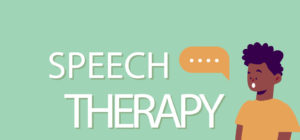The Benefits of Early Speech Therapy for Adults After a Stroke
A stroke can have a profound impact on an individual’s ability to communicate. Speech and language difficulties are common after a stroke, affecting speech production, comprehension, reading, and writing. Early intervention through speech therapy is crucial for improving these skills and enhancing overall recovery. Here’s why early speech therapy is beneficial for adults after a stroke.
Maximizes Recovery Potential
The brain has the greatest ability to recover and reorganise itself soon after a stroke. This period, known as neuroplasticity, allows the brain to form new neural connections, compensating for damaged areas. Early speech therapy leverages this critical window, promoting faster and more effective recovery of communication skills.
Improves Communication Skills
Speech therapy addresses various communication challenges, including aphasia (difficulty with language), dysarthria (slurred speech), and apraxia of speech (difficulty coordinating speech movements). Therapists use targeted exercises to improve speech clarity, language comprehension, and expressive abilities. Early intervention helps individuals regain their communication skills more quickly, enabling better interaction with family, friends, and caregivers.
Enhances Quality of Life
Communication is essential for daily living and social interactions. Speech therapy helps individuals regain the ability to express their needs, participate in conversations, and maintain social connections. This improvement in communication significantly enhances the individual’s quality of life, reducing feelings of isolation and frustration.
Boosts Confidence and Independence
Regaining communication skills through speech therapy can boost an individual’s confidence and self-esteem. Being able to communicate effectively allows stroke survivors to engage in more activities independently, reducing their reliance on caregivers. This newfound independence fosters a sense of control and autonomy in their lives.
Provides Personalised Care
Speech therapists develop individualized treatment plans tailored to the specific needs and goals of each patient. Early intervention allows therapists to address issues unique to the stroke survivor, ensuring that therapy is both relevant and effective. This personalised approach maximises the potential for improvement and helps set realistic, achievable goals.
Supports Emotional Well-Being
Stroke survivors often experience emotional challenges, such as depression and anxiety, due to the sudden changes in their abilities. Early speech therapy provides emotional support by helping individuals communicate their feelings and concerns. Improved communication reduces frustration and helps individuals cope better with the emotional aftermath of a stroke.
Educates Family and Caregivers
Early speech therapy involves educating family members and caregivers about the communication challenges faced by stroke survivors. This education includes strategies to support communication at home and in daily interactions. Understanding these challenges and how to address them can improve the overall support system for the stroke survivor, fostering a more conducive environment for recovery.




